“Silly Gaijin! Anime is for Japanese otaku!”
The launch of the Fate/Grand Order Absolute Demonic Front: Babylonia anime has caused a bit of a controversy in the anime community. As is my wont, I figured I’d address this issue and give my thoughts.
The Controversy
For those don’t know, Fate/Grand Order is a mobile gacha game, continuing the multi-universe created by TYPE-MOON, of which Fate/stay night is the most well known Fate title. In Fate/Grand Order, your player character needs to summon an army of Servants to resolve Singularities that threaten the existence of the world. The different Singularities are in a different location in the world, and a different time period. Each Singularity has its own story.
The Fate/Grand Order Absolute Demonic Front: Babylonia anime is an adaptation of the Seventh Singularity (story). Unfortunately, if you are someone who has never played the game, the only other Singularity that was given an adaptation was the First Singularity, set in Fuyuki. That was a TV special called Fate/Grand Order: First Order. (I reviewed that here.) Singularities 2 through 5 are not being adapted. The Sixth Singularity is being made as a movie, to be released in 2020.
Since both First Order and Babylonia have been licensed for America, people attempting to watch Babylonia without having played the game are left somewhat confused. After all, most of the story prior to Babylonia is skipped, but is given a mention in the series. This has angered many people in the West, since the entry bar for Babylonia is pretty high.
Anime Adaptations Are Commercials For Japanese Audiences
Anime adaptations of a light novel, manga, or game are primarily designed with one of two purposes. The first purpose is that of an advertisement for the source material. In the case of Fate/Grand Order, the anime adaptation Fate/Grand Order: First Order was merely a commercial for the game.
While some anime adaptations that are used as commercials will do an entire TV series (and sometimes multiple seasons), Fate/Grand Order: First Order was only a TV special. First Order did tell all of the First Singularity’s story, but in a much abbreviated form. The entire purpose was to give the Japanese otaku who were on the fence about the game a reason to get into the game and start spending. Considering the $3+ billion they’ve spent to date, I guess it worked.
Anime Adaptations Are “Rewards” For Japanese Otaku
The second purpose of an anime adaptation is to “reward” Japanese otaku of a franchise or series for spending all of their money. After all, as I was once told by someone in Japan, you can’t call yourself a true fan of a series or franchise unless you buy everything created for said series or franchise. So when the Japanese copyright owners of said series or franchise want to “reward” the otaku, they create an anime adaptation. And the otaku in question now have something else to buy to show their fandom, this time on DVD or BD.
In the case of Fate/Grand Order Absolute Demonic Front: Babylonia TV series, and the 2020 movie Fate/Grand Order The Movie Divine Realm of the Round Table: Camelot, these are “rewards” for the otaku to spend money on. Western audiences are not brought into consideration for the most part. FGO is available in the West for players to access. However, as I was told by @KuugaP on Twitter,
Babylonia and Camelot are being made simply because [Japanese] fans of the franchise voted for them to be animated.
And the fact the FGO director design philosophy is “not caring about people who wouldnt [sic] even dl the game”
Anime Adaptations Are (Mostly) Not Made For Gaijin
The Japanese have a very different mindset about adaptations than we do in the West. Frankly, I usually find the Japanese approach to anime adaptations insanely short sighted. I don’t mean making an anime adapatation’s story cater to a non-Japanese audience. It can still cater to the Japanese otaku crowds the copyright owners are trying to milk. But at the same time, don’t abandon proper story writing. Don’t force audiences to have had to already be 100% familiar to the source materials.
In the case of Fate/Grand Order, I feel that the all of the singularities could have been given proper stories via multiple TV series. But alas, that is Gaijin thinking. After all, anime adaptations are built with only the Japanese otaku market in mind. And if you want the bloody FGO story, download the game and SPEND tons of money!
What are your thoughts on this? Let me know in the comments!



 October 10th, 2019
October 10th, 2019  AstroNerdBoy
AstroNerdBoy 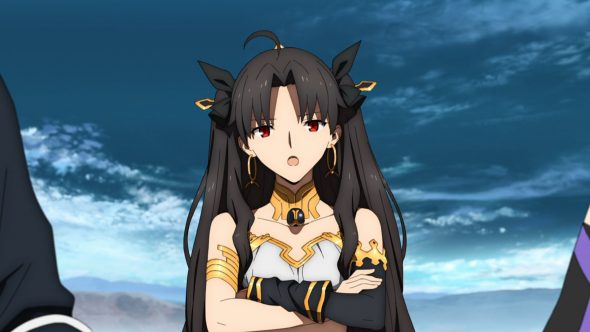
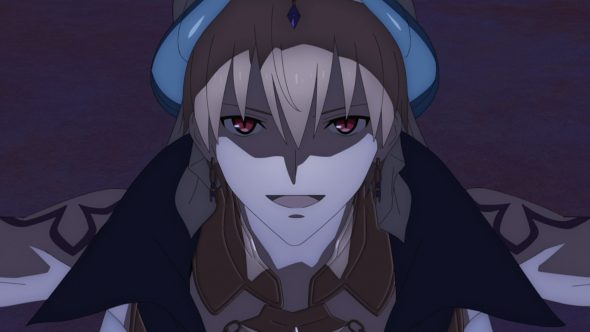
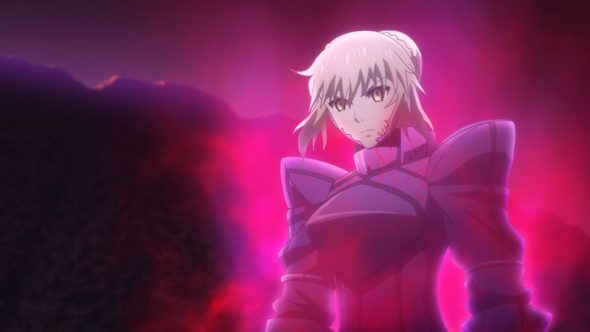
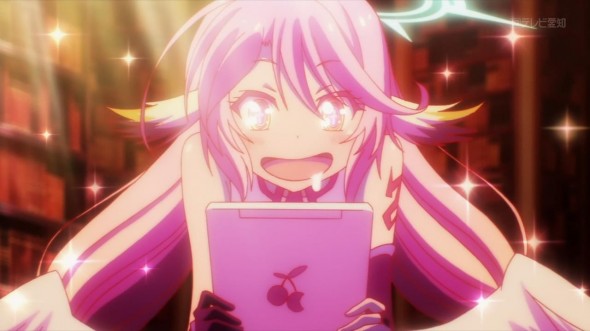
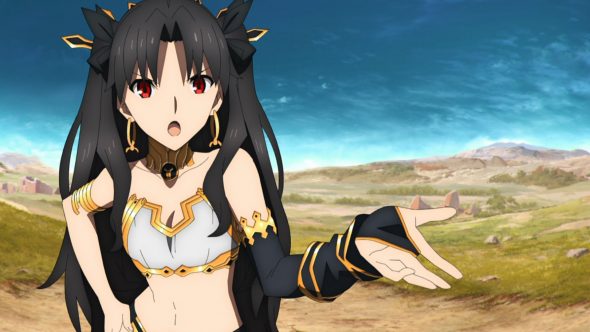
 Posted in
Posted in  Tags:
Tags: 
Short-sighted. Yes they are but we still like and buy a lot of anime. Sakura Wars which I found fascinating when I saw it on TV was an advertisement for a Japanese game which i doubt was ever sold in North America. I think of several others that make more sense as ads rather than works of art.
I do not consider myself an otaku as I have lots of other entertainment. I am a fan of certain shows though such as Maison Ikkoku, Yawara that fashionable judo girl!, Genshiken. the whole long show including Season II, the manga and a short novel “the Return of the Otaku” in which said otaku saves the world among other series like Kimague Orange Road, Pat Labor, Project A-ko, etc ad lib.
I am no good at the sort of games played today but then i did not get into Anime and Manga until I was over 60 about 22 years ago, Anime got me into manga and I read more manga and buy too much for my meager pension. My favorites are stories like Show:A history of Japan by Mizuki and a Drifting Life for realism and then Ooku and the biographical works of various people such as Higashimura Akiko.
But I have been a fan of the American comics since my mother read them to me as an toddler. I like to promote for example “Harlem Hellfighters” an account of black American veterans heroism and the terrible things that happened to them when they came back to the states.
During the Comix era in the 1960s & 70s I collected those that I likes and still have a few. But i am just a fan not an otaku.
bliss
True. And I have a mountain of anime to prove that. 😂
I don’t think the otaku culture is one that is really in America. Yeah, we have hardcore fans for franchises and things. And they may buy a lot of stuff. But I think in Japan, they really take the cake.
Haha! A lot of hold school titles there. I never have gotten around to watch Pat Labor or Yawara. Part of the massive pile of anime to watch.
You’re 82 now? You’ve got me beat then. 😉
That said, games are not for everyone. Although I play games, I often stink at them due to my preferred, casual play style.
I know the feeling. 😅
That’s a more modern title, right?
I was foolish enough to mention
The Harlem Hellfighters
The Harlem Hellfighters is a graphic novel written by author Max Brooks with illustrations done by Caanan White.Wikipedia
Creator:Max Brooks (writing), Caanan White (art)
Date:April 1, 2014
Page count:272 pages
I found this at the San Francisco Public Library and was not sure of the details
but I found it a worthwhile read. Entertaining and tragic in many parts.
So now you can look it up and I saw two offers for sale at least as
I did a little search. It is indeed more recent and it is under advertised.
bliss
Awesome! Thanks for the info!
Whole-hearted agreement; I stopped watching new anime years ago when it became clear that studios in general weren’t even going to make half-baked attempts at self-contained adaptations anymore (and why should they? They’re literally being paid (the studios of course, we all know the animators are only paid token amounts) to increase interest in the original comic/game/novel series and related merchandise) and that that lack of interest in the story and skill in telling it had even spilled over onto most anime with an “original” story.
At least that’s half my story; the other half is around the same time I resumed studying written Japanese years after having flunked out and gotten a degree in CompSci instead, so I read novels and comics now instead. Watching some shoddy subtitled anime adaptation, or read the original and improve my Japanese literacy? Easy choice.
I can understand that. Obviously, I am still watching new stuff, but there’s usually another factor at play. For example, Azur Lane artwork often appears on my Twitter feed since I follow a number of Japanese artist. And after years of curiosity that started with Kantai Collection (which I haven’t watched), I thought I’d give this a whirl. At least the creators of Azur Lane aren’t being arses like Fate/Grand Order’s creators are.
No doubt!
I’ve never understood the “If we leave this adaptation incomplete, fans will have no choice but checking the original work to see what’s the whole thing about!”
If I see a carelessly handled adaptation, more often than not my thought will be the franchise handlers will have most likely handled the rest of the franchise just as badly, and rather it’ll take me further away from the whole. I feel that happened with UQ Holder, where if anything the bad buzz the anime got killed a lot of momentum and fan appeal for the manga. The UQ Holder manga seems to be much less discussed now than it was before the anime.
In this case, however, I know Type-Moon can do and has done better. Fate Zero, Fate Unlimited Blade Works TV and the Heaven’s Feel movies DO bother to adapt the whole of what they are covering and even add to it, EVEN if there were previous adaptations of the Fate visual novel. It makes me wish Ufotable were in charge of adapting Grand Order or EXTRA, because they, unlike SHAFT and the studios handling Babylonia, do care about going the extra mile.
It is purely a Japanese thing. That said, it has worked on me. I started the Ah! My Goddess manga because the original 5-episode OVA had me curious. So folks said, “Read the manga” and I did. Likewise “Love Hina” and “Fruits Basket.” I bought/read both of those manga because of the anime.
Today, I’d do the manga even if the anime adaptation is good. But that’s my book collecting fetish. 😅
You are not wrong there. There’s not even any desire for spoilers off shore. I still get a tiny tick up in traffic before the next UQ Holder chapter lands, but it isn’t like it was.
Regarding FGO, I think the decision to limit the scope of the anime is a management one at DW, the developers of FGO. So even if ufotable scored the title, they’d be limited by what the powers over FGO decreed would/would not be animated.
Ah. That explains that. Like you, I thought it was odd they’d choose the Babylonia singularity, since viewers would get tossed in the deep end. It’s the last stop before the grand finale for what I guess you could call FGO’s Season 1. I thought the story in the game was OK, had some fun characters, but what I really remember about it was thinking it had at least one or two “false endings” IMO — times when I thought “okay, this *has* to be the endboss”, only to discover that no, there was still at least another round of battles to go.
Heh. That’s how I got into the A!MG/OMG! manga, too. Glad I did (though I thought that series probably went on ten-ish volumes longer than it should have…)
Martian Successor Nadesico is still one of my favorite anime series (and I remember from the Ayeka Fan Club days that we fundamentally disagree on this point… :)). I still remember wondering why in the world the Prince of Darkness movie had such a grimmer tone than the TV series. I later learned that there was a visual novel (for the Saturn, I think?) that was an important bridge between the two.Even today, the odds of bringing that stateside would be low — back then, forget about it. I didn’t care for how Tenchi OVA3 ended, because I got the feeling that I was missing something. [spoiler]I genuinely had no idea what Misaki was doing there with and to the Choushin[/spoiler]. I agree that anime creators shouldn’t worry about catering to a non-Japanese audience, but it would be nice to be able to watch series without having to wonder if there was background material you needed to catch up with first.
We did? 😅 It has been ages since I watched that series, so you’ll have to forgive me for not remembering our disagreement on.
The info-dump? It is overwhelming.
Azur Lane seems to be doing fine so far.
Heh. No worries — it *was* a long time ago, wasn’t it? Sorry to go an a Grandpa Simpson-style ramble. ^_^
Fair point.
It is interesting to contrast the usual US business method, where the TV series/movie is the main product, with the anime model where the series is often just an ad for something else. American producers seem to make a point of being able to watch nothing but the main show/movie and get a complete story (and back in the heyday of syndication, being able to jump into any random episode of a TV series and be able to quickly figure out what’s going on). Sure, you can read the Star Wars or Star Trek novels or play videogames to get interesting background, but you certainly don’t need to in order to understand what’s happening in the main show/movie.
The US self-contained model has its own issues, of course — every Batman reboot feels the need to remind us that (all together now) Bruce Wayne’s parents were shot down in a dark alley outside a theater, causing Bruce to etc. etc. And someone who watches the MCU movies or the DC Arrowverse shows and decides to check out the comic books for more may face a bewildering array of titles, none of which may have current storylines related to do with the movie/show that caught their interest in the first place (yes, the MCU and Arrowverse often assemble their storylines using bits and pieces of classic arcs from the comic books, but sometimes it doesn’t seem as if there’s an easy guide for, say, “If you liked season one of The Flash, check out these volumes of the comic”).
Still, overall I do prefer the model where the TV show or movie is a story with all the necessary elements, no need to go elsewhere to fill in gaps. A US horror movie came out a few years ago that ended with a message telling people to go to the movie’s associated website for the rest of the story — and audiences were not happy (though apparently it was a pretty bad movie overall): https://slate.com/culture/2012/01/the-devil-inside-ending-is-it-the-worst-ever-and-why-do-people-hate-it.html . When I was little, the movie they made based on the game Clue had alternate endings depending on which showing you went to (the newspaper movie listings showed what endings were showing at what times on which screens); audiences did not like the idea of having to see the same movie multiple times, and it flopped at the box office, but became a cult classic after the VHS and DVD came out with all the endings in one place. https://kotaku.com/clues-multiple-endings-confused-everyone-way-before-mas-5897929 US audiences, it seems, like to know we can get our story in one place…and I would generally agree with that.
Yep. But I’d say that it isn’t just U.S. audiences. I think Western audiences in general prefer this. That’s one thing that has harmed the canon Tenchi Muyo! Ryo-ohki franchise in the West. People weren’t happy that one needed to read the novels and such to get the whole story. And that problem has only grown worse, as OVA 4 proved. But in Japan, the otaku market they are catering to has no issues with needing to get the story via multi-media sources. After all, the otaku market mindset is that to prove one is a TRUE fan of something, one has to buy EVERYTHING for said something.
“That’s one thing that has harmed the canon Tenchi Muyo! Ryo-ohki franchise in the West.”
That, and the fact Kajishima still doesn’t get that people just don’t want to see these characters sitting down and prattling on and on about their family lives.
Like, I’ve bothered to research a fair lot on Tenchi OVA continuity lore, even the Japan-only stuff, and something like OVA 4’s story does NOT confuse me… but it still BORES me, because Kajishima just wants to do slice of life that caters only to his own interests and fetishes. It’s not even good, funny slice of life like Azumanga Daioh or K-On, it’s alien charac ters sitting around tables and onsen discussing space family marriage arrangements, and aristocratic intrigue needs a modicum of action to be interesting.
It’s no wonder the stuff doesn’t take up, it’s bland and uninteresting even if you know the whole story behind what the characters are saying. Nabeshin may have brough a lot of dumb comedy to GXP, but he at least spiced it up beyond and up from Kajishima’s alien clan diapositive shows.
In the West, maybe not. But in Japan, apparently that doesn’t bother them. But then the target audience owns all of the novels, books, doujinshi, etc. And because so many people bought OVA 4 in Japan, we are getting OVA 5.
Azur Lane have the advantage that it don’t have a story after chapter 4, who are just episode 1 and 2 from the anime. Chapter 5 to 12 are just maps with gameplay, no cutscenes or characters talking.
The tidbits of the story are all in the events without a clear timeline so it is easy for them to make anything for their anime without any chains to their creativity like the fixed story from FGO.
Interesting. Thanks for the info. FGO is more of a pseudo visual novel interrupted by pointless action moments.
“I agree that anime creators shouldn’t worry about catering to a non-Japanese audience”
And why not? Western entertainment is trying to cater more to other audiences of late, being more racially diverse and culturally sensitive as a whole. It’s about darn time the Japanese start doing their part in a globalized world too.
My own thoughts were that the Japanese don’t need to Americanize a story. A lot of stories can be quite Japanese-centric, yet still be very good. That’s why anime and manga has grown in popularity in the West. That was what I meant by catering to a non-Japanese audience.
However, the Japanese decisions are based on (1) not losing face in Japan (which is worse than death) and (2) keeping the fragile otaku market happy, and thus spending all of their money to prove how they are true fans of X.
FGO is an extreme case of this though. Azur Lane doesn’t seem to have this same negative nonsense that FGO has, at least anime-wise. (Can’t speak for the game.) That’s the stuff I object to.
I agree that the creators of anime and manga do not need to cater to other
cultural tastes. One of the fascinating things about anime and manga is the
portrayal of the Japanese culture. If this FGO fails in the USA maybe that
series will be given a pass in the future, by the American fans or which
ever culture fans are basically members of. In other words from reviews
and online manga you can determine if a series is to your taste or not
and if not you can ignore it.
But another thing in Japanese manga is that classic works are
adapted to the modern media. We have this last month Plinius
about the Roman naturalist Pliny and it is very good, We also have
the adaptation of Marcel Proust epic “in search of lost time” as a
manga and an anime. I don’t now whether or not the anime can
capture the story or not and have not yet found the time to look
at the manga for review.
The adaptations of Western themes and stories never seems
to end especially of the Conan Doyle stories of Holmes and
Watson.
It sure beats Classic Comics from my youth in the 1940s
and 1950s.
One thing an old bag like myself appreciates is the use
of monochrome drawing in manga. I grew up with black and
white comics in the news papers when it ran daily to two
full pages. Color comics were a weekend treat.
Just my 2 cents worth.
bliss
True.
Haha! The Sunday paper was always a treat for the comic strips there.
But as a teenager, I was spoiled by Marvel and DC color comic books. However, my time in Japan caused me to appreciate the black-and-white stuff more for non-comic strip stuff.
“I agree that the creators of anime and manga do not need to cater to other cultural tastes.”
If the Japanese don’t want to pay attention to other countries’ sensibilities then they shouldn’t be doing games dealing with historical figures from across the globe in the first place.
Like, I’m Latin American. I’m incredibly upset apparently our whole culture and history don’t mean anything to Grand Order, as if we never were worth anything for the course of human history, but there IS room for one hundred increasingly ridiculous and stupid Artorias (renamed ‘Altrias’ even when the Western localization teams have repeteadly told Nasu ‘Artoria’ and ‘Arturia’ make much more phonetic and grammatic sense, but no, the Japanese of course know more than Westerners about how Western names should be written), and dozens of Japanese Servants (including foreigners in the bodies of Japanese characters like Rin or Sakura) instead.
What do we get? A single Servant who is a Mexican goddess (who came from outer space in this lore, meaning she isn’t even local) and who speaks broken, horribly done Spanish, the kind that already was well outdated when Superfriends’ El Dorado did it in the seventies, and can’t even get the exact culture right, mixing Mexican stuff with Brazilian (the whole unfunny Santa/Samba embarrassing thing) references. And some random Jaguar God. In the body of a Japanese character, because OF COURSE.
The anime and movies were created because of a poll that DW or TM made in the jp server after the end of the first part, for what singularity the fanbase wanted to be animated as a series, Babylonia got first and Camelot second so they chose to make the series and movies on that I believe.
So yeah it is just fan-service for the people that played the game for so long.
But from what I read in some translated interviews that they wanted to make it so even newcomers could understand it or at least understand the core of the singularity, of course it might not work because of the volume of the lore, but each singularity have a contained history so maybe it can work.
Episode 00 failed horribly at this. Episode 01 was a bit better.
Good day. It’s just my opinion as FGO player, but Camelot and Babylonia Singularities have much more depth and potential in terms of story-telling. While it would be great to see Singularities 1-5 animated, their stories seem rather generic. Looking at the picture as whole, aside from some important moments and setting there isn’t much difference between said Singularities.
Thanks for commenting, Erebos!
The “First Order” TV special did animate the first singularity. I saw this before I was able to play the game. And I remembered thinking at the time that if they just did things in a TV series, it would have been much better.
I know I started skipping the story during the Francis Drake singularity. But then it was mindless banter interrupted by, “Oh! Monsters! Let’s fight, Senpai!” So I do get your point on the singularities. However, in my mind, since most anime adaptations do their own thing, I felt putting all of the singularities into anime form could improve on whatever weak story the source game provided.